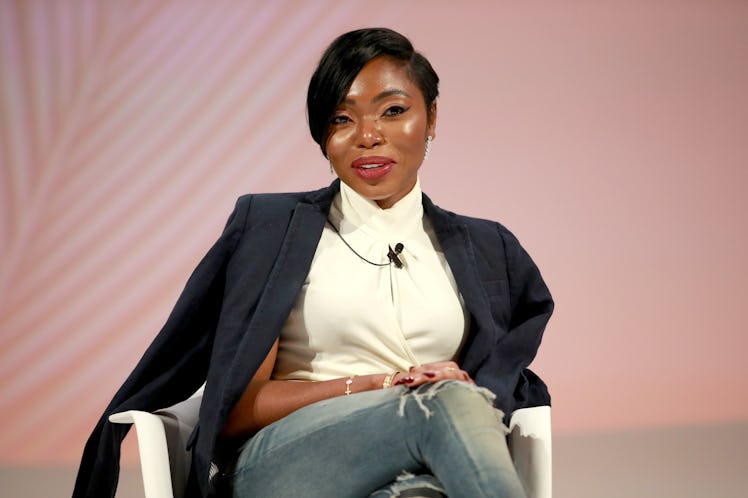
Several Brands Released How Many Black Employees They Have For The #PullUpOrShutUp Challenge
As peaceful protests continue around the world calling for an end to systematic racism and police brutality in the wake of George Floyd’s murder, many people are rightfully calling for brands to do more than just post a single text graphic of support on Instagram. Actions speak louder than words, particularly when it comes to supporting the Black community. That’s why Sharon Chuter, founder and CEO of UOMA Beauty, started the #PullUporShutUp Challenge for brands to release their percentages of Black employees at multiple seniority levels in an attempt for transparency and to hold brands accountable.
You’ve probably noticed the outpouring of black squares and calls for solidarity from most fashion and beauty brands on Instagram. Some have even gone further and donated to organizations focused on ending racial inequality. And while donating is a straightforward way to support the Black community, how can a brand continue that support if it isn’t hiring or doing anything in its own office to promote and support Black people? That’s why Chuter started the #PullUporShutUp challenge.
“Be conscious that to piggyback off a trending hashtag when you have been and continue to be a part of the problem is once again appropriating and exploiting the black community,” the Pull Up for Change Instagram posted on June 3. “So we ask all brands who have released a statement of support to publicly release within the next 72hrs the number of black employees they have in their organizations at a corporate level.” The post also called for brands to share the number of Black people in leadership roles. As Black people make up about 15% of the U.S. population, according to the 15% Pledge website, and 10% of college graduates, Pull Up for Change highlights how hiring practices don’t reflect that.
Since this call, some brands have stepped forward. Kylie Cosmetics revealed that 13% of its team are Black staffers. Milk Makeup’s full breakdown of its team showed that Black people comprise 9% of the team. At Lime Crime, there are currently no Black people on its HQ team. At Ulta Beauty, Black people make up 18% of board members, 13% of team leaders, and 6% of associates. ColourPop’s team consists of only 3% Black staffers, though Latinx people make up 80%. At Glossier, there is no Black representation at the VP level or higher. Biossance, Morphe, and Tarte all pulled up as well, with numbers at all levels below 8%.
So far, Pull Up for Change has made it clear that brands need to put in more work to fundamentally change their hiring practices, and some brands are releasing initiatives to help change their numbers. Still, many companies have kept still keeping their numbers quiet. Change can’t happen if doors, especially leadership roles, remain closed to Black people. By releasing their staffing numbers, brands can have an open and honest conversation about how to fix their problem and ensure Black people have a seat at the table in terms of when, where, and how companies are making decisions. Below are some of the statements brands have made in regards to the #PullUporShutUp challenge.